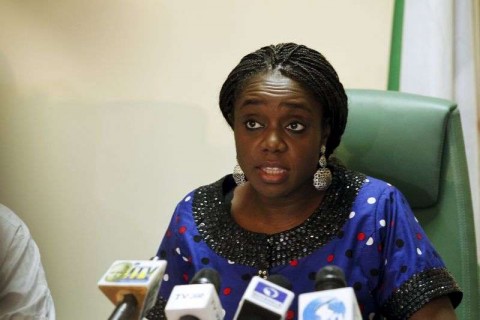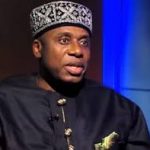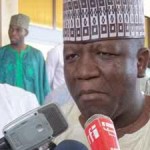Nigeria’s Economy Technically in Recession – Finance Minister
Featured, Latest Headlines, News Thursday, July 21st, 2016
Ayodele Afolabi, Abuja
The Minister of Finance, Mrs Kemi Adeosun on Thursday officially acknowledged before the Senate that Nigerian economy was technically in recession going by the two-digit inflation rate and other negative indices on ground.
Adeosun who stated this while briefing the senate on strategies and policies being adopted by the federal government to address the economic problems at hand, however said the recession was not a full blown one but technical because of some indices to that effect.
“Technically our economy for now, is in recession because if you go into two quotas of negative growth, your economy can be said to be in recession. Thus, technically we are in recession but I dont think we should dwell on the definition. I think we should really dwell on where we are going.
“I think if we are in recession what I will like to say is we are going to come out of it and it would be a very short one because the policies that we have, would ensure that we don’t go below where we need to go and I think with what we are doing right now, we would begin to turn things around”, she said.
But when reminded at the session that the International Monetary Fund (IMF) in its latest reports, predicted that the Nigerian economy would continue to shrink till the end of the year, the Minister said the reports should be disregarded as such projections have not always been accurate.
“I am not too worried about the IMF projection because their projections have not always been accurate.They equally issued a negative report on Britain as a result of Brexit. I don’t think we should panic everytime IMF speaks. I think we need to be confident around what we are doing and where we are going. I remained extremely confident as I said around Nigeria”, she said.
She explained that in getting things turned around faster, government in its implementation of the 2016 budget, have been very strategic in spending by investing in infrastructure, a move she said, had made government released a total of N247.9billion for capital projects execution in the 2016 budget.
According to her, out of the N247.9billion released so far from the N1.1trillion capital votes in the budget, N74billion went to Works for infrastructural development as against N19billion released to the sector for the whole of last year, while N21.6billion and N22billion were released and cash backed for execution of capital projects in the Agriculture and Transport sectors respectively.
She added that additional release of N60billion for capital projects execution would be made by the federal government in few weeks’ time.
The Minister in response to question on financial status of the country inherited from immediate past administration said they inherited little reserves but huge debts one of which was the $5billion cash calls indebtedness.
She said: “I think at a time like this blaming who was responsible doesn’t actually take us anywhere but I will tell you what I inherited. I inherited very little by way of reserves, I inherited significant debt, contractor debt. Cash calls of $5 billion dollars outstanding to the oil companies.
“Many of the contractors even though we have paid them N107 billion find it very difficult to work because they are owed and some of them have not being paid since 2012. Their claims are over N390 billion. So, I didn’t inherit reserves that are positive, I inherited reserves that tend to be more negative than positive because the economy is actually in very good hands and we are doing absolutely our best to get through this difficult period.
“We are doing everything possible to avert and to manage the situation which we didn’t create unfortunately but which we inherited and we as a nation we must all get out of”.
The Minister in her presentation, appealed to Nigerians to patronize locally made goods as against imported ones as a way of strengthening the Naira and revamping the economy.
She however assured the lawmakers that federal government was seriously putting measures in place to diversify the Nation’s economy in view of the dwindling revenues accruing from crude oil sales, aside decline in its production level as against increase in population.
“Government is seriously moving towards diversification of the economy more so, since the mono product template can no longer sustain the survival of the country economically.
“While Nigeria with her 170 million estimated population, produces 2.2million barrel per liter of crude oil per day, Kuwait with a far less population of 1.4million people, produces 2.9mbp and not talk of Saudi Arabia populated by an estimated 30million people, producing 9.7million barrels per day”, she explained.
Related Posts
Short URL: https://www.africanexaminer.com/?p=34409






















